As a parent, it can be really worrying to see your baby suffer from a rash. One common skin condition that affects many babies is eczema, which can make your baby itchy and uncomfortable. In this post, we'll cover what baby eczema is, how to treat it, and how to prevent it.
What is Baby Eczema?
Baby eczema, also known as infantile eczema or atopic dermatitis, is a common skin condition that affects up to 20% of infants. This chronic condition causes patches of red, dry, and itchy skin that can appear anywhere on the body, but most commonly on the cheeks, scalp, elbows and knees.
There are several causes of baby eczema, including genetics, environmental factors, and a weakened immune system. Certain factors such as a family history of eczema, asthma, or allergies, as well as exposure to irritants such as perfumes, soaps, and detergents can significantly increase the risk of your baby developing eczema at a young age.
The symptoms of baby eczema can vary from mild to severe and usually include dry, itchy, and red patches of skin, skin thickening, and oozing or crusting of the affected area.
How to Treat Baby Eczema
The good news is that baby eczema can be treated effectively with a combination of medications and lifestyle changes. Here are some tips for managing your baby's eczema:
-
Topical creams and ointments
- Your GP may recommend topical creams or ointments to reduce inflammation and soothe itching. Hydrocortisone cream, which is a mild steroid that reduces inflammation and itching, is the most commonly prescribed treatment. Other topical treatments may include creams containing ceramides, which help repair the skin barrier, or calcineurin inhibitors, which reduce inflammation without using steroids.
Always make sure that you follow your doctor’s dosage recommendation and instructions to avoid overuse. These creams can cause side effects such as skin thinning and discoloration.
Other options are available over the counter. Double Base is a great cream that can help repair the skin barrier without the use of steroids or other harsh chemicals.
-
Moisturise regularly
- Keeping your baby's skin hydrated is crucial for preventing eczema flare-ups. Use a fragrance-free moisturiser such as Child’s Farm several times a day, especially after bathing. Look for moisturisers that contain ceramides, which help repair the skin barrier, or colloidal oatmeal, which soothes itching and inflammation.
-
Avoid irritants
- Certain fabrics, soaps, detergents, and other products can irritate your baby's skin and trigger eczema flare-ups. Use mild, fragrance-free products and avoid tight clothing. It's also important to avoid using fabric softeners or dryer sheets, as they can leave a residue on clothing that can irritate sensitive skin.
-
Manage itching and discomfort
- Itching and discomfort are common symptoms of eczema, and they can be challenging to manage in babies. Use cool, wet compresses or oatmeal baths to soothe itching and reduce discomfort. You can also trim your baby's nails to prevent them from scratching their skin, or use cotton gloves to cover their hands at night.
It's important to seek professional medical advice if your baby's eczema is severe or doesn't improve with home treatment. Your doctor may recommend additional options or refer you to a dermatologist.
How to Prevent Baby Eczema
Preventing eczema in babies can be challenging, but there are steps you can take to reduce the risk. Here are some tips:
-
Maintain a healthy diet
- Traditional milk formula has been found to be a catalyst for eczema. If you can breastfeed, that remains the best option for your baby but you can also opt for hypoallergenic formulas that can help reduce the risk of eczema in infants. Introducing solid foods gradually and avoiding common allergens, such as nuts and dairy, can help too. Your Health Visitor or doctor can give you valuable insights about the best diet for your baby.
-
Keep your baby's skin clean and dry
- Bathe your baby with lukewarm water and a mild, fragrance-free soap. We love the Aveeno Baby moisturing wash that is very gentle and promotes moisture. Pat the skin dry with a soft towel and apply moisturiser immediately. Avoid using hot water or harsh soaps, as they can dry out your baby's skin and make eczema worse.
-
Use silk bedding
- Sleeping on silk to sooth eczema is recommended by the National Eczema Society for its breathability and natural hypoallergenic properties. Unlike cotton, silk also doesn’t absorb the natural moisture of the skin and helps maintain its natural hydration. The Little Silk's sheet are made out of the highest quality mulberry silk to guarantee the softest bedding for your little one’s precious skin. Our partnership with the Lullaby Trust also gives parents the peace of mind knowing that sleep safety is at the heart of what we do.
-
Avoid triggers
- Try to identify and avoid triggers that can cause eczema flare-ups. The most common triggers for babies are stress, exposure to harsh chemicals, high temperatures, and specific allergic reactions. Keep your baby's environment clean, free of dust and pet hair, which can also trigger eczema.
-
Use appropriate clothing
- Dress your baby in loose, breathable clothing made of soft and natural fabrics to reduce friction. Here again, silk is strongly recommended for it's soft texture and breathability and cotton is a good less expensive alternative. On the other hand, wool should be avoided because it will catch on the scaly skin will likely promote sweating.
Conclusion
Baby eczema can be distressing for both parents and babies, but with proper treatment and prevention, it can be managed effectively. Remember to consult your GP or Health Visitor for advice on the best treatment plan for your baby. By following the tips discussed in this blog post, you can help your little one manage their eczema symptoms and keep their skin happy and healthy!


